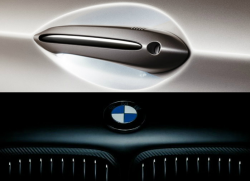
— A BMW soft close doors lawsuit is over as BMW won its motion to dismiss the lawsuit that alleges the doors can close on people's fingers due to a lack of sensors in the soft close door systems.
The judge said that humans have been slamming their fingers in doors since doors were invented and the doors on BMW's vehicles are no exception.
Plaintiffs Avi Azoulai, Kamil Cirak, and Reem Haidary and/or their family members suffered injuries humans are all too familiar with by having doors close on their fingers.
But rather than seeking to recover for their injuries, the plaintiffs filed a class-action lawsuit based on consumer fraud, alleging the BMW soft close automatic feature is defective because it does not have sensors to detect fingers in the car doors before activating and that BMW unlawfully failed to disclose the alleged defect.
The lawsuit names the following allegedly defective vehicles:
- 2002–2015 BMW 7 Series (excluding G11/G12 models)
- 2004–2016 BMW 6 Series Coupe and Convertible
- 2008–2016 BMW X5
- 2009–2016 BMW X6
- 2010–2016 BMW 5 Series GT
- 2011–2016 BMW 5 Series
- 2013–2016 BMW 6 Series GC
- (All of the M models of these vehicle are also included)
Beginning in 2002, BMW began developing, marketing, advertising and selling vehicles with soft close doors, an optional add-on costing approximately $500 to $1,000 that auto-activates and pulls the door of the vehicle to the frame of the vehicle and firmly closes it when the door is within 6mm of the closed position.
The plaintiffs argue the actual gap between various points of the door and the door frame may be larger than 6mm when the system activates, causing anything in the way of the door to be “squeezed and crushed” between the door and the door frame.
The plaintiffs allege they suffered injuries in the form of crushed fingers, with one plaintiff claiming a “right finger crush injury" when “the door of [his vehicle] was lightly pushed toward the closing position,” and the soft close system activated to pull the door completely shut on his finger.
In addition, another plaintiff suffered an injury to his right thumb after he exited the vehicle and the door “slowly recoiled back . . . toward the closing position.”
Plaintiff Avi Azoulai filed a first amended complaint that BMW quickly moved to dismiss for lack of standing, among other alleged problems in each of the claims. After hearing arguments on the motion to dismiss, the court granted BMW’s motion to dismiss for lack of standing, but allowed the plaintiffs the chance to amend the complaint.
A second amended lawsuit was filed on September 22, 2016, which added two additional plaintiffs, something that caused BMW to file another motion to dismiss because of a lack of standing and failure to state a claim.
The plaintiffs argue they overpaid for their vehicles and the claimed defect caused a loss in value. However, the judge ruled these allegations do not support standing because the plaintiffs did not plead a design defect that is actionable in the context of consumer fraud.
The court found that the lack of a sensor in the system does not constitute a design defect in the consumer fraud context. Additionally, the judge ruled that claims of warranty violations and fraudulent concealment and fraudulent representations are insufficient.
Unlike the first time the soft close door lawsuit was dismissed, this dismissal is granted without the possibility to amend the complaint, a clear win for BMW.
The BMW soft close door lawsuit took place in the U.S. District Court Northern District of California San Jose Division - Avi Azoulai, et al., v. BMW of North America LLC.
The plaintiffs are represented by the Margarian Law Firm.




